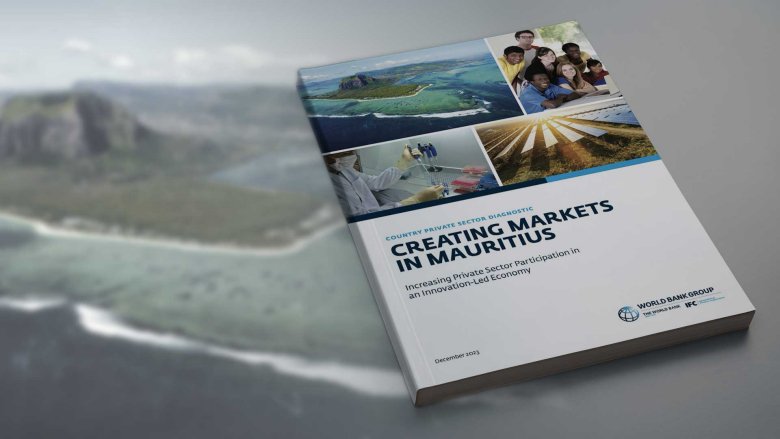DOWNLOAD: |
Mauritius has achieved remarkable success in overcoming the challenges commonly faced by small island states. Over the past 50 years, the country has undergone a significant transformation, transitioning from a low-income agriculture-based economy to a diverse upper-middle-income economy. In the past decade however, Mauritius has encountered challenges that have impacted its long-term growth model. The COVID-19 pandemic has further exposed long-standing structural issues in key sectors and has shed light on gender and youth disparities in labor force participation.
The offers an overview of the challenges and opportunities to further private sector growth in the country. The CPSD notes that the island-nation can build on its strengths to increase investments and diversify into more knowledge-intensive activities while expanding the economic participation of women and youth. The CPSD highlights education, renewable energy, and healthcare as sectors with potential for higher value-added growth and provides actionable recommendations and proposes short- and medium-term policy actions that can have a significant impact on development. The report also explores how innovation can be crucial in helping Mauritius to transition to a new development model. It highlights the need to develop a national innovation strategy that provides clear priorities and promotes research, and knowledge generation and transfer.
The report further notes MauritiusˇŻ potential to become a regional hub for education and health and provides concrete recommendations. In education, the report recommends Mauritius enhance the student experience and promote public-private partnerships to attract more students and investments. In healthcare, the report recommends creating an action plan and developing a legal, policy, and regulatory framework to support MauritiusˇŻ vision of becoming a regional medical hub. Finally, in renewable energy, the CPSD recommends Mauritius continue to strengthen the dialogue with the private sector to promote the implementation of the Renewable Energy Roadmap 2030. This dialogue should include the terms of power purchase agreements and tender processes to encourage private sector investments in wind, solar, and biomass projects.


